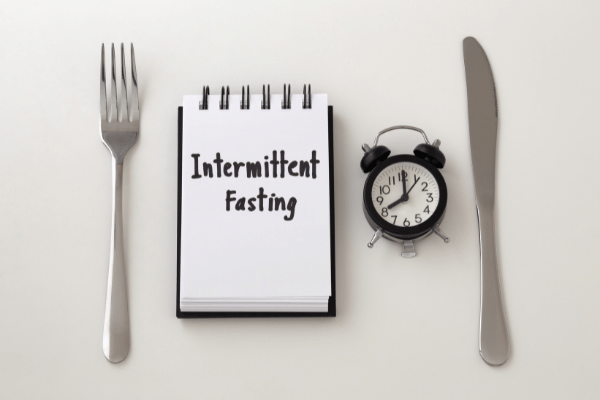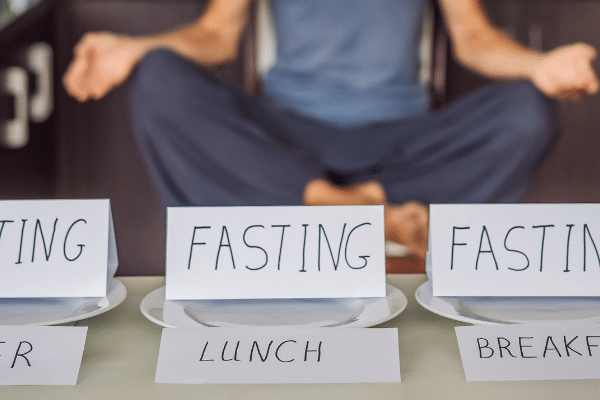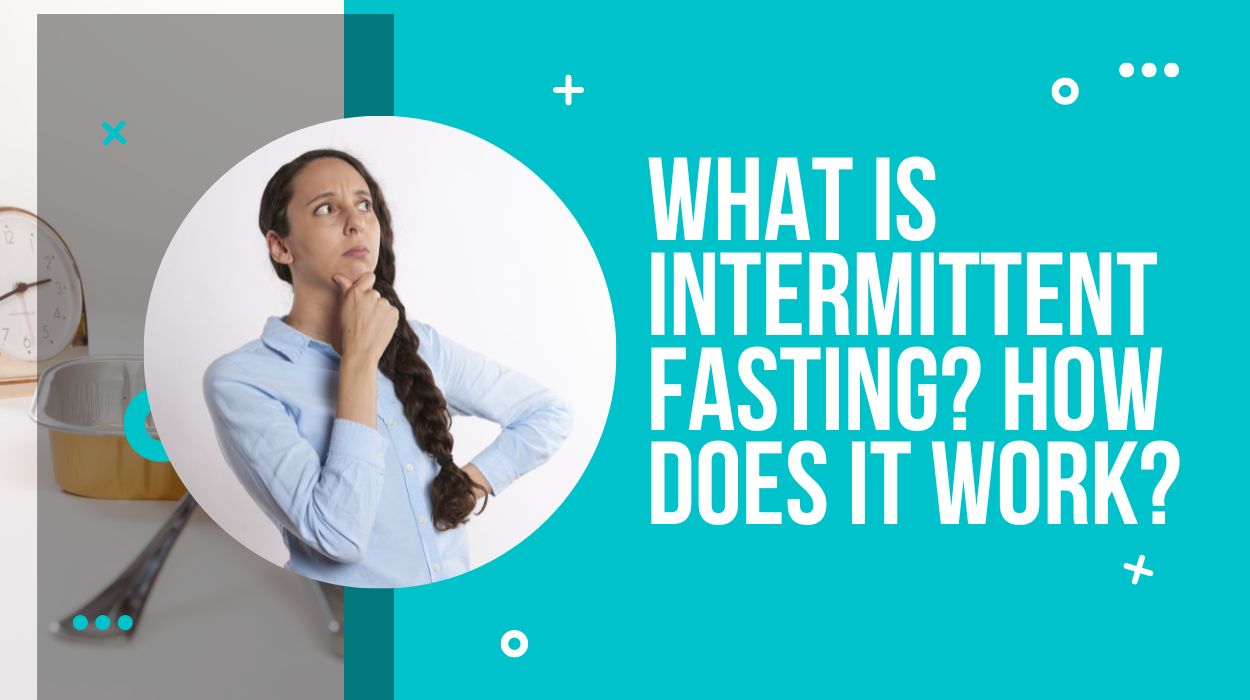Fasting is good for the body and keeps you healthy and fit. There are three types of fasting- calorie restriction, seasonal eating, and nutritional restriction. And one of the types of fasting, called intermittent fasting, includes all types mentioned above.
But how is it different from other types of fasting? And how can you follow the proper routine of such fasting? What must you eat or not, and at what time? Also, do you need to exercise on a diet?
Do not worry if you are unaware of the answers to these questions. In this article, we will dive deeper into intermittent fasting and learn how it exactly works.
What is Intermittent Fasting?

Intermittent fasting is an energy restriction process alternating between non-fasting and fasting periods. Either people keep regular fasts, short term, or do not consume any food the whole day.
To start with such a type of fasting, you must be aware of its types. It may not suit many people. Therefore, you need to plan as if it is done correctly; you may burn calories and achieve your goal. So, let’s see the different plans you can choose for intermittent fasting.
Different Plans

We will look into the most popular types of intermittent fasting to make it easier for you to choose one. But, if you have any health issues, do recommend consulting your doctor in the first place. You can go for any of the ones out of,
1. 16:8 method
In the 16:8 intermittent fasting method, you should fast for 16 hours and eat between the remaining 8 hours. You can consume calories in midday and abstain from food at night.
2. Eat stop eat
In the eat stop eat type, you can eat healthy food for 5 to 6 days a week and abstain from food for 24 hours for two days. But remember to stay hydrated even on the fasting days.
3. 5:2 diet
In a 5:2 diet, you can eat normal food for five days and fast for two days. But you can eat 500 to 600 calories on the day you are on fast.
4. Warrior diet
In the warrior diet, you need to fast for 20 hours per day and eat anything within the remaining four hours. You can drink juices during the fasting period and consume calorie-free items if you wish to.
5. Alternate-day fasting
Fast on alternative days is alternate-day fasting. You can consume drinks like calorie-free juices, unsweetened coffee, and tea on fast days.
6. Spontaneous meal skipping
Spontaneous intermittent fast is all upon you to skip any meal you wish and eat calories whenever you want. But balance the meal during the non-fasting period to enjoy its benefits.
What to eat during fasting?

During intermittent fasting, do prefer eating high fibrous food. Like, nuts, fruits, vegetables and protein-rich food items to gain energy to abide food in non-fasting time. Eat meat, fish, and soy by-products, and keep yourself hydrated by drinking water, juices, or low caloric and healthy dairy products.
If you are fasting for a long period, you can add healthy fats, carbs and proteins to your diet. Like, brown rice, sweet potatoes and other fresh vegetables high in protein.
Advice: Eat healthy food items that take time to digest, like bananas, so that you remain full of energy and do not feel hungry during fasting.
Is it safe to do intermittent fasting?
As mentioned above, do consider consulting your doctor if you have any health issues. Why? Because intermittent fasting is not safe for people with kidney problems, breastfeeding women, children, eating disorders, diabetic patients, etc., missing meals could lead to other health problems in them. So, talk with your doctor and start intermittent fasting with a suitable plan if he allows you.
How does it work?

When we eat, the carbohydrates present in the food break down into glucose, which mixes with the blood and is used by our body in energy. And excess glucose is stored in other organs like the liver and tissues for later use, called glycogen and fats. That is why it is recommended not to eat excess food or sugary items.
But, fasting can convert glycogen back into glucose. And the fat may break down into fatty acids to convert itself to ketones and then to glucose. Therefore, you can lose weight by intermittent fasting.
Also, the insulin level increases when you eat food and decreases between the gap of another meal. So, if you eat food the whole day, your insulin level will remain high, desensitizing body tissues causing insulin sensitivity. So, you can try intermittent fasting, and if you are a beginner, begin with 5:2 intermittent fasting. Prefer exercising, working out or doing creative activities on a fasting day to stay more fit and healthy.
What are the benefits of intermittent fasting?

Did you know intermittent fasting can benefit you a lot more than weight loss? Let us dive deeper into the various health benefits fasting provides you!
1. Decrease insulin level
As said before, when you consume food, the insulin level increases in your body and intermittent fasting may help you improve insulin resistance by reducing leptin levels and increasing adiponectin.
2. Weight loss
Eating in a set period helps lose fat from the body. Also, intermittent fasting helps you consume fewer calories and balance the calorie level of the body.
3. Gain lean muscle mass
Intermittent fasting may help you preserve muscles more than by cutting calories. Just keep on exercising while you are on an intermittent fast. It will not only help you to gain muscles but also lose more fat.
4. Hormonal benefits
When you work out during intermittent fasting, your body produces more human growth hormones and testosterone, which help you with all benefits to get fit.
5. Maintain healthy diet
While fasting, your metabolic rate increases as you intake less and exerts more calories. And as mentioned above, to get the best results from intermittent fasting, you must follow a proper diet, including nutritious food items.
6. Cognitive benefits
Intermittent fasting may help you cognitively by sharpening your memory power and thinking abilities. It also maintains your brain health by increasing the neuroplasticity in the brain, which prevents brain injuries and diseases.
7. Improve blood pressure
For people with high blood pressure, intermittent fasting is great to reduce blood pressure. How? When you rest your body and then eat and repeat the same, parasympathetic activity increases, decreasing the blood pressure.
8. Prevent obesity
As said before, intermittent fasting helps you reduce weight and burn calories. Therefore, it may help you get rid of obesity too. Just try to follow the 16:8 method or any other effective method of your wish for several weeks. You may find a decrease in fat mass.
9. Increase life span
The above points talk about various health benefits of intermittent fasting. Right? So, if you get rid of diabetes, cardiovascular disease and much more, will you not face aging diseases slowly? Yes, you will! Because fasting helps improve oxidative stress markers, a measure of longevity.
You May Also Like To Read:
Cheap High Protein Foods Sources In India
How To Lose Weight In 15 Days?
Ways To Lose Belly Fat Naturally
Conclusion
Intermittent fasting is an energy restriction process alternating between non-fasting and fasting periods. There are several types of it, like the 16:8 method, 5:2 diet, eat stop eat, warrior fasting, and spontaneous fasting.
Intermittent fasting works by converting the glycogen and fat present in our body back into glucose and releasing energy. And this working process benefits us with weight loss, improved insulin and blood pressure levels, hormonal and cognitive benefits, and increased life span.
We hope you found this article helpful. Do try intermittent fasting to stay healthy. But, if you have any health issues or you are a child or breastfeeding woman, consult your doctor before keeping fast. Also, do not forget to share your experience reading this article in the comment section below. And stay happy and healthy!


